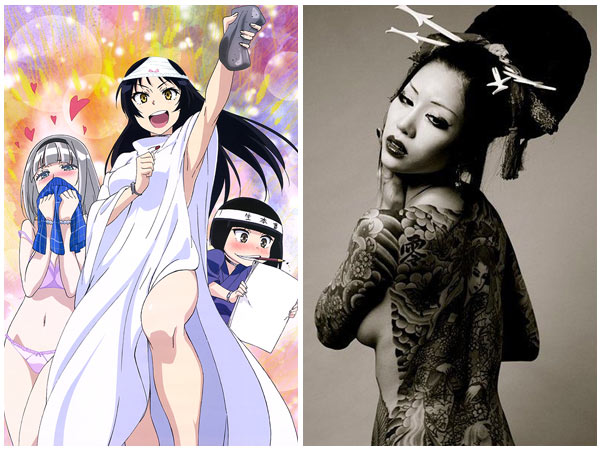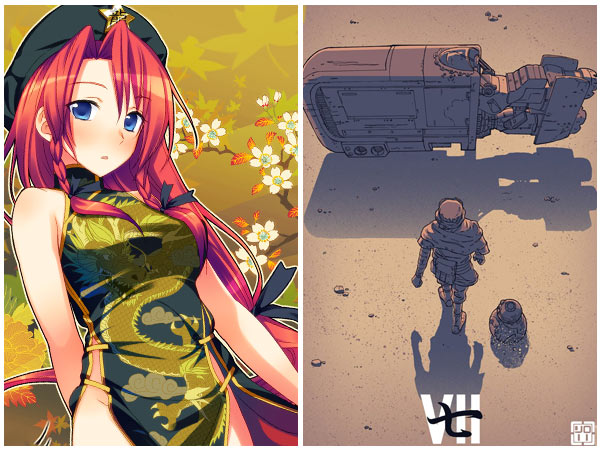It’s part of the nature of the Japanese people to prefer substituting euphemisms for words that are embarrassing to use directly, and you’ll often year terms like 人身事故 jinshin-jiko or “an accident involving physical injury” to refer to train suicides, or そうですね so desu ne, meaning “yes, that’s so” for “thanks for your suggestion, we’ll pretend to consider it carefully before we discard it.” One concept you learn pretty quickly when dealing with Japanese pop culture is that Japanese love substituting the English letter “H” (pronounced ecchi) for anything sexual, which was first popularized in a novel published in 1956. While the letter is assumed to stand for the Japanese word hentai, which means abnormal or deviant (though in English the word has come to describe certain kinds of manga, games and anime from Japan), there are some competing theories. The “H” could stand for the English word husband, which was a slang word for sex among female students in the Meiji period, or it could represent the first katakana in the word エロチック (erotic), which looks like an “H” lying on its side, or it could have come from the 1955 Marilyn Monroe film The Seven Year Itch, which was popular in Japan (“itch” and “ecchi” sound very similar in Japanese). One show I’m enjoying a lot this season is the Shimoneta: A Boring World Where the Concept of Dirty Jokes Doesn’t Exist, about a dystopian future in which all sexual expression has been outlawed, and the efforts of an “ero-terrorist” organization to bring it back. While the show is filled with low-brow jokes, it’s a surprisingly deep allegory about how repressed modern Japan society can be.
Sometimes when visiting the Akihabara area of Tokyo you run into a surprising sight, giant sumo wrestlers walking around in huge yukata robes, because the sumo stadium in Ryogoku is located nearby. Another colorful type of person you occasionally see in Japan are yakuza, members of Japan’s famous organized crime gangs. Meaning “8-9-3” and referring to a losing hand in the traditional Japanese card game hanafuda, the yakuza have almost four hundred years of history dating from the Edo Period. While yakuza gangsters have been seen as defenders of the weak in popular lore, in reality they’re very smart criminals who operate various shady enterprises, from prostitution to illegal high-interest loans to atari-ya, thugs who get into car accidents on purpose so they can extract money from poor victims. Although yakuza are gangsters, they’re usually very polite, and it’s considered good form for a well-connected person to have a few as friends, just in case you ever need them. Currently there are rumors that the largest yakuza group, the Yamaguchi-gumi of Kobe, is undergoing an internal rift, which could cause bloodshed as members compete for turf…though historically the yakuza have always been careful to make sure sure innocents are never caught in the crossfire. (Image credit.)

Summer is ending, and to bid it a proper farewell J-List has decided to have a Labor Day and End of Summer sale! Through the end of September 7, we’re having a sitewide sale. Order $125 or more, and get $25 back…or order $60 or more and get $10 back, if you can’t find enough cool stuff for the bigger discount. The money will be issued to you as a store credit which can be used at any time on either jlist.com or jbox.com sites, and it will carry over to the new site when we launch later this month. Let’s shopping at J-List!
















